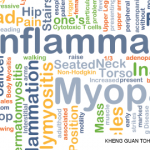WASHINGTON, D.C.—Increasing evidence suggesting that rheumatoid arthritis (RA) begins in mucosal sites such as the oral cavity and lung years before it appears in the joints may lead to improving treatment and prevention of the disease before it becomes symptomatic.
According to Kevin Deane, MD, a rheumatologist at the University of Colorado School of Medicine in Aurora, understanding that RA likely starts outside of the joints at the mucosal surface should lead to a paradigm shift in the way in which the etiology and pathogenesis of RA is investigated.
“We, as a rheumatology community, need to support research studies to improve our understanding of the process of generation of rheumatoid arthritis–related autoimmunity at mucosal sites so that we are able to reach the goal of preventing rheumatoid arthritis before the first swollen joint,” he said, “or even block the initial development of rheumatoid arthritis–related autoimmunity.”
Speaking here at the 2012 ACR/ARHP Annual Meeting, held November 9–14, Dr. Deane was one of a panel of experts describing recent evidence suggestive of this new paradigm shift in the session titled, “Extraarticular Involvement in Rheumatoid Arthritis.” [Editor’s Note: This session was recorded and is available via ACR SessionSelect at www.rheumatology.org.]
Although Dr. Deane focused on the lung as the primary site of generation of RA-related autoimmunity, Ted R. Mikuls, MD, MSPH, professor of internal medicine in the division of rheumatology at the University of Nebraska Medical Center in Omaha, focused on the oral cavity and periodontal disease as a risk factor for RA.
Does RA Start in the Lung?
Dr. Deane presented evidence to support the hypothesis that RA likely starts in the lung. “While many mucosal sites may be culprits,” he said, “much data support that the lung is the primary site of generation of rheumatoid arthritis–related autoimmunity for many subjects that develop rheumatoid arthritis.”
Among the evidence he presented supporting this hypothesis were data from a pilot study he and colleagues conducted that showed that persons at risk of RA based on their family history of disease had elevations of RA-related autoantibodies in their sputum but not in their blood.
According to Dr. Deane, these results indicate that these patients may be generating these autoantibodies in their lungs and support the notion that lungs are a site of initiation of RA-related autoimmunity for some people.
He emphasized that, if autoimmunity is generated in the lung, identifying mechanisms by which this autoimmunity develops such as pathways of tissue inflammation (e.g., formation of inflammatory tissue such as bronchus-associated lymphatic tissue), and identifying triggers for disease such as environmental factors (e.g., smoking) or organisms (e.g., Porphyromonas gingivalis) may lead to ways to prevent RA.

